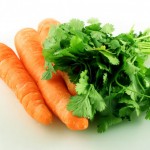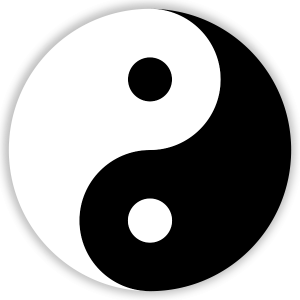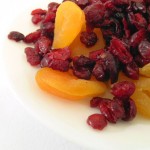Macrobiotic Diet
What is the Macrobiotic Diet?
The word “macrobiotic” comes from Greek roots and means “long life”. Mr George Oshawa (October 18, 1893 – April 23, 1966) is generally conisdered the founder of the Macrobiotic Diet. But, it wasn’t until the 1970s that the teachings spread to the rest of the world, by Mr Oshawa’s disciples Michio Kushi and Herman Aihara.
 The Macrobiotic diet is mainly a vegetarian diet, although animal products may be included at occasions, if wanted. The diet is low in calories and saturated fats, and high in fiber. The Macrobiotic diet helps reducing high levels of cholesterol and blood pressure as well as reducing the risk of constipation.
The Macrobiotic diet is mainly a vegetarian diet, although animal products may be included at occasions, if wanted. The diet is low in calories and saturated fats, and high in fiber. The Macrobiotic diet helps reducing high levels of cholesterol and blood pressure as well as reducing the risk of constipation.
A typical diet consists of 40-60% organically grown whole grains, 20-25% locally and organically grown vegetables and fruits, 5-10% soups made with vegetables, seaweed, grains, beans, and miso (a fermented soy product).
 Macrobiotic Diet – Yin and Yang
Macrobiotic Diet – Yin and Yang
The Macrobiotic diet could be defined as a system of balance aimed at promoting health and happiness, based largely on yin and yang. Proponents of the Macrobiotic diet believe that it is possible to balance the two conflicting energies by eating foods that have equal quantities of yin and yang.
Foods that are thought to contain a harmonious balance of yin and yang are wholegrain cereals, fresh fruits, nuts and seeds, leafy vegetables, beans, peas and lentils. This is the reason why the Macrobiotic diet is based mainly on these food products.
Foods that should be reduced or avoided from your diet are those with high levels of yin or yang. Examples of foods with high yin are sugar, tea, alcohol, coffee, milk, cream, yogurt and most herbs and spices. Examples of foods with high yang are red meat, poultry, fish and shellfish, eggs, hard cheeses and salt.
You need a balance between the two forces, yin and yang to stay healthy and in harmony in your body and mind and the Macrobiotic diet therefore needs to be tailored to the needs of the individual by a macrobiotic nutritionist.
Macrobiotic Diet – Peaceful Relationship with Food
The Macrobiotic diet encourage maintaining a relationship with food that is respectful and peaceful by cooking only with natural implements and preparing and eating food in a peaceful setting. It addresses that you should only eat when you’re hungry, chew your food thoroughly and slowly before swallowing, and that you should not over eat.
Macrobiotic Diet – Organic Foods
 The macrobiotic diet emphasizes on fiber-rich whole grains, vegetables and beans. It is recommended that these foods should be organic. About 40-60% of the daily food (by weight) should be made of whole grains. Example of whole grains are brown rice, whole wheat berries, barley, millet, rye, corn, buckwheat, rolled oats, noodles, pasta, bread and baked goods.
The macrobiotic diet emphasizes on fiber-rich whole grains, vegetables and beans. It is recommended that these foods should be organic. About 40-60% of the daily food (by weight) should be made of whole grains. Example of whole grains are brown rice, whole wheat berries, barley, millet, rye, corn, buckwheat, rolled oats, noodles, pasta, bread and baked goods.
Vegetables make about 20-30% of the daily food intake and up to one-third of the total vegetable intake can be raw. Otherwise, vegetables should be steamed, boiled, baked and sauteed. Beans make up 5-10% of the daily food intake and this includes cooked beans or bean products such as tofu, tempeh and natto.
Soups are important in the Macrobiotic diet. You should eat one or two cups/bowls of soup per day. Soups made on fermented soybeans, are commonly used.
Macrobiotic Diet – Fruits, Seeds and Nuts
Local fruit can be consumed several times a week. Fruits like apples, pears, peaches, apricots, grapes, berries and melons are recommended while tropical fruits such as mango, pineapple and papaya are usually avoided. Seeds and nuts are allowed in moderation and can be lightly roasted and salted with sea salt or shoyu.
Macrobiotic Diet – Animal Products
The Macrobiotic diet is mainly a vegetarian diet, emphasizing whole grains and vegetables, but you may eat fish and seafood if preferred. A small amount of fish or seafood may be consumed several times per week. Fish or seafood are eaten with horseradish, wasabi, ginger, mustard or grated daikon to help the body detoxify from the effects of fish and seafood.
Meat, poultry, eggs and dairy are usually avoided. The Macrobiotic diet is low in meat, dairy products, sugar, artificially or chemically treated foods and caffeine. In some more strict variation of the Macrobiotic diet all animal products, certain vegetables, refined sugars and any foods that have been artificially processed, are avoided completely.
Macrobiotic Diet – Vegetable Oils
Cooking oil is typically unrefined vegetable oil. Use dark sesame oil for the most flavors or light sesame oil for a milder taste. Since sesame oil has a rich and nutty flavor you don’t have to use much oil to enhance the flavor of your food, which means less fat in your diet. Corn oil and mustard seed oil are also used in the Macrobiotic diet.
Macrobiotic Diet – Naturally Sweet Foods
 The desserts, made of naturally sweet foods, are allowed two to three times per week. The Macrobiotic diet emphasizes naturally sweet foods such as apples, squash, adzuki beans and dried fruit. Natural sweeteners such as rice syrup, barley malt and amazake can be used. Sugar, honey, molasses, chocolate, carob and other sweeteners are avoided.
The desserts, made of naturally sweet foods, are allowed two to three times per week. The Macrobiotic diet emphasizes naturally sweet foods such as apples, squash, adzuki beans and dried fruit. Natural sweeteners such as rice syrup, barley malt and amazake can be used. Sugar, honey, molasses, chocolate, carob and other sweeteners are avoided.
Macrobiotic Diet – Female Hormones
The Macrobiotic diet is low in saturated fat and high in phytoestrogens (derived from soya products), which is said to help balancing female hormones and help with premenstrual syndrome (PMS) and menopause. It has also been said that it may prevent breast cancer and endometriosis, but more research is needed on how the Macrobiotic diet can assist in cancer prevention and treatment.
Macrobiotic Diet – Lack in Nutrients
The creators of the Macrobiotic diet claim that it can slow, cure and prevent cancer, although there is no scientific evidence to support these claims.
The Macrobiotic diet is considered by some nutritionists to be too restrictive and lacking in certain nutrients, such as protein, vitamin B12, iron, magnesium, and calcium, especially since vitamin or mineral supplements are not allowed. This can lead to serious health problems such as malnutrition and anemia.
If you’re interested in following a macrobiotic diet it’s important to talk to a registered dietitian, especially if suffering from a chronic disease such as cancer. He or she can help you design meal plans that include adequate vitamins and minerals.

 Facebook
Facebook  Twitter
Twitter  RSS
RSS







